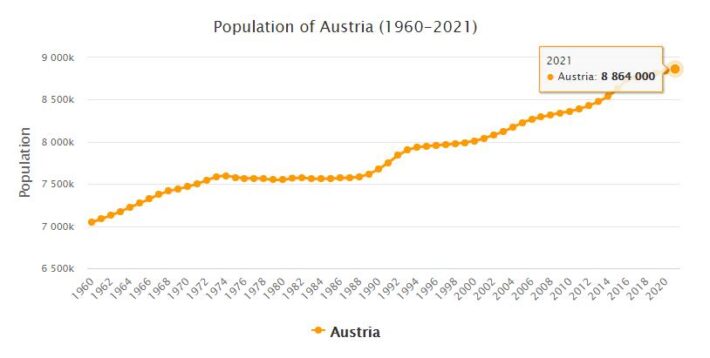Yearbook 2012
Austria. In January, President Heinz Fischer withdrew an award that Heinz-Christian Strache, leader of the right-wing Freedom Party (FPÖ), would receive after ten years in government service. The reason was that Strache said that his followers were like Jews during Nazism, thus persecuted, because of a demonstration against an annual ball organized by right-wing extremists and which collided with the Holocaust Remembrance Day. Strache again ended up in blustery weather when he posted an anti-Semitic cartoon drawing on Facebook in August.
The credit rating agency Standard & Poor’s in January lowered Austria’s credit rating one step due to negative outlook. In February, Moody’s did the same. In the same month, the government presented a tightening plan of over € 26 billion to bring the budget deficit in line with EU rules. These were mainly expenditure cuts, but a third consisted of tax increases, especially for high-income earners. In 2011, the budget deficit was just above the EU ceiling of 3%.
At the same time, Austria had the lowest unemployment rate in the euro zone, just over 4%.
A new Euro-skeptical party, Team Stronach für Österreich, was formed in September. Five parliamentarians soon joined the party, which was thus represented in the National Council. Opinion polls showed support of around 10% of voters. Founder Frank Stronach was an 80-year-old Austrian who returned home after spending over half a century in Canada, where he built up the successful auto company Magna International and became one of the world’s richest men. Stronach was opposed to the euro as it hurt Europe’s competitiveness.
A previously unknown piano piece by Mozart was performed for the first time in March, in the composer’s childhood home in Salzburg and on a piano that was his. The piece had been found in a notebook from 1780 on a wind in Tyrol and was believed to have been composed by Mozart when he was ten years old.
- AbbreviationFinder.org: Provides most commonly used acronyms and abbreviations for Austria. Also includes location map, major cities, and country overview.
November
Police crack down on radical Islamists
November 9
Police raid more than 60 addresses linked to radical Islamists. Millions of euros in cash are seized and 30 people are taken in for questioning. The raids take place a week after an attack in Vienna that claimed four lives, but according to the authorities, the action has nothing to do with the attack but is the result of more than a year of reconnaissance and planning in order to “pull political Islam down its roots”. Two days later, Chancellor Sebastian Kurz announces that it will be possible to detain convicted terrorists who have served their sentences for preventive purposes.
The anti-terrorist chief resigns
November 6
The head of the capital’s anti-terrorism unit, Erich Zwettler, has resigned after it emerged that both Germany and Slovakia provided serious information about the man who shot dead four people in Vienna on November 2 without the authorities in Austria taking any action. According to the German intelligence service, the man had been in contact with suspects in Germany and the Slovaks indicated that the man had tried to buy ammunition earlier this year.
Terrorist acts require four lives
November 2
Four people lose their lives and more than twenty are injured when a man opens fire in the center of Vienna and shoots at passers-by and at visitors to restaurants and bars. The attacker, who was killed by police, had previously been sentenced to prison for trying to join the terrorist sect IS in Syria, but was released on parole since December 2019. Shots were fired at six locations in Vienna, including near a closed synagogue. The act is condemned by, among others, the neighbors in the EU, by the USA, Israel, Egypt and Iran. The Islamic State announced the next day that the attack had been carried out by “one of the caliphate’s soldiers”. In the aftermath of the attack, two mosques in Vienna that the assassin regularly visited are closed. The mosques are judged to have contributed to the man’s radicalization.
The country is closed for a month
November 2
Approves a four-week closure of the country, from 3 to 30 November; Hotels, restaurants, cultural institutions and sports facilities will be closed. Only shops and basic services such as hairdressers are allowed to be open. Curfews will apply from 8 in the evening to 6 in the morning. All events except funerals are prohibited. The primary schools will be open but older students will be taught at a distance. Federal Chancellor Sebastian Kurz says that the measures are necessary so that intensive care is not overloaded when the coronavirus is now spreading. Two weeks later, the restrictions are lifted and the Austrians are urged to stay at home as much as possible.
Population 2012
According to countryaah, the population of Austria in 2012 was 8,678,549, ranking number 97 in the world. The population growth rate was 0.630% yearly, and the population density was 105.3120 people per km2.
